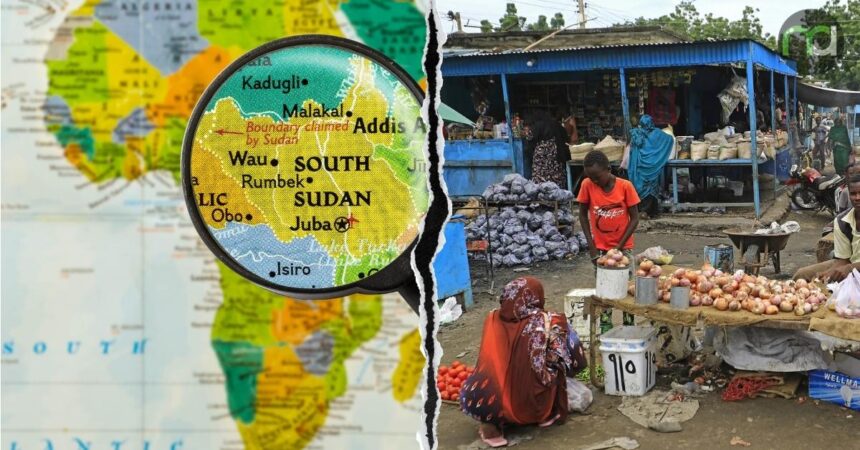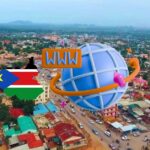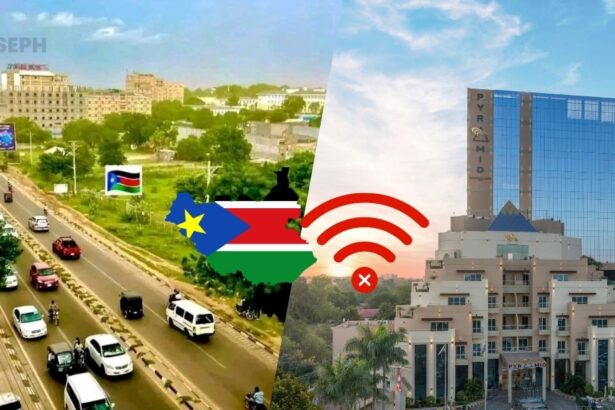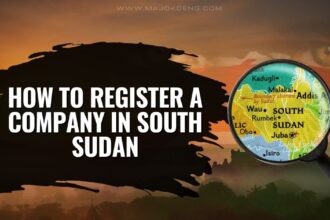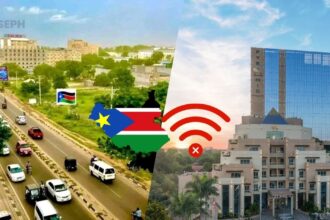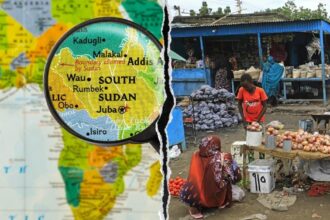South Sudan remains one of Africa’s youngest markets, full of potential but shaped by instability. Fertile land, a young population, and untapped resources exist alongside weak institutions and failing infrastructure. Since late 2024, U.S. foreign aid has been sharply reduced under the Dodge Project, a program pushed by President Donald Trump and Elon Musk. The policy suspended key USAID and business support programs, cutting off funds for local training and small enterprise growth.
But in May 2025, that alliance collapsed. Musk resigned from the Department of Government Efficiency after a public fallout with Trump over budget direction. Trump responded by threatening to review federal contracts with Musk’s companies. As a result, the Dodge Project has lost traction inside U.S. agencies. While technically still active, its enforcement is inconsistent.
Meanwhile, economic pressure has worsened. Oil exports were halted in May 2025 after Sudan shut down the cross-border pipeline, cutting off South Sudan’s main source of hard currency. Inflation hit 115% by late 2024 and, although projected to fall to 30% by the end of 2025, prices remain high. The black-market dollar rate is still up to 50% higher than the official rate.
These challenges have made financing, procurement, and day-to-day operations harder. But they also open space for those who can deliver reliable food, logistics, electricity, water, or healthcare without relying on donors. This guide walks you through 7 steps to start a business in South Sudan in 2025, based on what’s actually happening on the ground.
1. Evaluate the Economic Climate and Risks
South Sudan’s economy relies on oil, and with the Port Sudan pipeline shut since May 2025, this source of foreign currency is no longer steady. If the shutdown continues, government spending will tighten. Delays in payments, paused infrastructure plans, and reduced availability of public contracts are already visible. Any business that relies on government funding must now plan with caution. It is safer to shift toward clients and sectors that can continue operating without public subsidies.
Prices are rising sharply. Inflation stood at about 65% in April 2025 and has risen close to 80% by May 2025. In many towns, the unofficial market exchange rate is over 40% higher than the official one. To stay ahead of these pressures, pricing contracts in dollars, Ugandan shillings, or Kenyan shillings offers more stability. Businesses should also review and adjust their pricing regularly. Restocking early after sharp currency drops can reduce future losses. Keeping part of your money in banks located in more stable countries can help you avoid local cash flow restrictions. Include clauses in your contracts that allow you to revise pricing if supplier costs rise during the project.
Infrastructure gaps make planning and operations more difficult. Fewer than one in five roads are paved, and many become unusable once the rains begin. Outside of Juba, there is little access to the national electricity grid, so most businesses depend on diesel generators. You should plan extra delivery time during the rainy season and include fuel and generator servicing costs in your financial planning. For logistics-heavy work, it is also important to build flexibility into your contracts so that you are not fully responsible when fuel prices rise.
Security conditions shift often and sometimes suddenly. Roadblocks, local conflicts, and shifting alliances make movement along trade routes uncertain. The best protection is local trust. Build strong ties with local leaders and hire people from the communities where you work. Have at least one backup route for delivery. You should also prepare a clear emergency plan that explains who will secure assets, how communication will continue, and what actions to take if the situation becomes unsafe.
The freeze on U.S. aid has removed many services that used to be supported by donors. Clinics, business training, and small-scale development projects have been paused or closed entirely. This leaves space for private providers to step in, but investors are no longer responding to goodwill alone. They expect clear financial records, proper legal documentation, and honest reporting. Start conversations with diaspora investors, banks in the region, or risk-tolerant funds as early as you can. Prepare your records carefully, including lease agreements, references from local authorities, and up-to-date financial statements.
A strong business plan in South Sudan must recognise the full picture: oil supply disruptions, rising inflation, fragile roads, unpredictable security, and a tighter flow of capital. These are not side issues. They are the environment your business must survive in. If your plan takes them seriously and works with the reality on the ground, you still have the chance to succeed and grow.
2. Register the Company and Comply with Local Ownership Rule
Setting up a company in South Sudan involves long queues, multiple offices, and often unclear instructions. Although officials may speak of a digital registration platform, most business owners still have to visit several ministries in person, with physical copies of documents and receipt books. Success depends on persistence, local support, and an ability to manage delays without losing patience or track of paperwork.
Where to Start:
- Ministry of Justice: Start with name reservation and registration by submitting your Articles and Memorandum of Association. These define your company’s purpose, governance, and capital investment. The Companies Act 2012 allows you to register with a single director or shareholder, regardless of nationality or residency status.
- Director and Shareholder Details: Submit valid IDs or passports for all directors and shareholders. You’ll also need a letter that outlines ownership percentages.
- Notarisation and Fees: Official fees for incorporation typically start around USD 200, not including lawyer charges. Some forms need notarisation by certified legal officers before submission. Payment is usually made through designated bank accounts, followed by returning with stamped proof.
- Tax Identification Number (TIN): TIN registration is required and issued by the National Ministry of Finance. This process takes 7 to 14 days, and while there is no official fee, informal costs may arise.
- Labour and Chamber Registration: If you plan to hire, register with the Ministry of Labour and deposit employee contracts. You must also register with the South Sudan Chamber of Commerce to obtain tax clearance and open a business account. This step usually costs around SSP 1950 (roughly $50) and takes 2–5 working days.
- Municipal License: Municipal licenses, like those from the Juba City Council, typically take 2 to 4 days to process and cost between $50 and $100 depending on the size and location of your operations.
Local Ownership Requirement:
Under the Investment Promotion Act 2009, any foreign investor must meet a minimum capital requirement of USD 100,000 and have a South Sudanese partner owning at least 31% of the business. In sectors like mining, security, and transport, the local ownership may need to be 51%.
To protect your interest:
- Draft strong partnership agreements that clearly define capital inputs, profit sharing, voting rights, and dispute mechanisms.
- Vet local partners by checking their financial records, political affiliations, and operational capacity.
- Use minority protection clauses if you don’t hold a majority stake.
Investment Certificate and Sector Permits:
For foreign-owned businesses, an investment certificate is mandatory under the 2009 Act. It signals official approval and grants eligibility for tax incentives, land allocation, or import exemptions. The certificate is usually issued if the business demonstrates contributions to employment, skills development, or infrastructure.
You may also need these sector-specific licenses:
- Agriculture: Requires environmental and land use clearance from local chiefs and the Ministry of Agriculture.
- Mining: Needs detailed documentation, including exploration maps and community engagement records.
- Health, Education, or Transport: These sectors are overseen by multiple ministries and usually require periodic inspection and licensing.
Smart Registration Tips:
- Use Local Networks: Introductions through community elders or known officials can speed up document handling.
- Stay Physically Present: Regular follow-up in person can keep your file moving. Absentee applications often stall.
- Keep Accurate Records: Store multiple copies of signed forms, fee receipts, and approval letters. If any paperwork is lost, you’ll need this to restart.
By following the Companies Act 2012 and Investment Promotion Act 2009 properly, and fulfilling every registration step thoroughly, you’ll build credibility, comply with regulations, and unlock further opportunities like access to finance or government tenders.
3. Build Local Partnerships and Secure Land Leases
In South Sudan, local partnerships are not optional. A trusted partner can open doors, clear obstacles with land officials, and help your business avoid disputes. But a poor choice can delay your work or destroy community trust. Look for someone who has delivered real results in similar projects and is known in both local government and community circles.
Foreigners cannot own land in South Sudan. The Land Act 2009 allows leasehold rights up to 99 years, but the Investment Promotion Act 2009 limits lease terms for foreign investors to:
- 30 years for agriculture
- 60 years for forestry or industrial use
These leases are renewable but only with proper approvals. Securing land legally requires two approvals:
Government Registration: Submit surveyed maps and lease documents to the county or payam land office. Officials confirm boundaries, check for disputes, and enter the lease in the land register. This step typically takes several weeks.
Customary Consent: Chiefs and elders must give written consent, especially for land held under customary tenure. Without their approval, formal leases can be challenged or rejected. Customary land holds equal legal weight and must be registered.
Before finalizing a lease:
- Get a land clearance certificate from the Lands Commission in Juba or local land authorities. This certificate confirms that there are no competing claims and that the land boundaries are well-defined.
- Prepare a detailed lease contract that outlines rent, payment schedule, lease duration, renewal rights, sublease terms, and exit clauses. Avoid using vague or overly general language.
- Attach a professionally surveyed map that shows exact boundaries, road access, easements, and any shared areas. This minimizes future disputes and improves legal clarity.
- Hire a lawyer with proven experience in both statutory and customary law. They should check all documentation for compliance, translate the terms for non-English speakers, and protect your long-term rights.
Community engagement is equally important:
- Explain the project early by meeting with village leaders and residents. Answer questions on grazing access, environmental impact, and job creation.
- Offer documented community benefits such as jobs, road maintenance, or shared infrastructure. Make these clear in short written agreements, signed by local leaders and witnesses.
- Avoid relying only on verbal promises or political connections that may not last. Agreements should be written, signed, and kept on record.
To reduce long-term risks:
- Verify your partner’s record through references from previous collaborators, NGOs, or local leaders.
- Conduct an Environmental and Social Impact Assessment (ESIA) before signing any lease. This is a legal requirement for projects affecting people or natural resources.
- Maintain regular contact with local leaders and government offices. This helps resolve misunderstandings before they escalate.
Weak local councils and missing land records can complicate land access. Clear documentation and real community inclusion make your lease stronger and more secure. By combining proper legal steps with respectful, transparent relationships, your business gains the foundation it needs to operate and grow in South Sudan.
4. Find Promising Sectors and Market Gaps
Success in South Sudan depends on choosing sectors with strong demand and limited competition. Some industries are underdeveloped but hold serious potential for growth if approached with local insight, practical planning, and long-term commitment.
Agriculture and Agro-Processing
South Sudan has vast fertile land, with about 95% of it arable, but only 4.5% is cultivated and under 5% is irrigated. Introducing irrigation, improved seeds, off-grid power, and processing units like milling and cold storage can significantly reduce losses and boost yields. Projects in Central and Western Equatoria have already shown how local processing can create jobs and enhance food security. Tax breaks on equipment imports and faster lease processing can further improve margins.
Mining and Mineral Resources
South Sudan’s 2012 Mining Act opened the way for legal investment in gold, copper, iron, diamonds, and limestone. These resources remain largely untapped. Geological surveys and formal licensing are still limited, leaving room for first-mover investors willing to fund early exploration and develop access roads. Community engagement is non-negotiable. Concessions have been revoked in areas where local groups were excluded or promises were broken. Any mining project must start with legally binding agreements that include chiefs, landowners, and local government.
Construction and Infrastructure
The demand for roads, schools, clinics, bridges, and utility connections continues to grow. Projects like the Juba to Bor and Juba to Nimule roads are part of this recovery. Energy efforts such as the 20 MW Juba solar plant and the Uganda to South Sudan transmission line also show new direction. Construction firms that offer logistics, surveying, project management, and equipment leasing often stand out in tenders. Delays in public funding and shifting donor support require flexible contracts and diversified clients.
Telecommunications and IT
Access to telecom and IT services remains among the lowest in Africa. Only about 38% of rural residents own phones, and fewer than 5% have electricity. Still, demand for mobile money, internet, and digital tools is rising, especially in secondary towns. Investors can deploy mobile towers, partner with local vendors, and power services using solar microgrids. Long-term returns often come from mobile payment platforms and partnerships with financial institutions. However, fuel availability, licensing procedures, and power reliability are ongoing challenges.
Services for NGOs and Aid Agencies
South Sudan hosts hundreds of international and local NGOs. Most require transport, logistics, warehousing, catering, and maintenance services. Even with temporary freezes in U.S. aid, European donors, UN agencies, and regional programs continue to fund projects. Vendors that meet delivery deadlines, understand donor reporting, and adjust to emergency requests quickly are often invited for long-term contracts. Aligning your services with grant cycles gives your business a strong advantage.
Light Manufacturing and Consumer Goods
Most consumer goods such as soap, bottled water, cooking oil, and cleaning supplies are imported from Kenya or Uganda. This makes them costly and slow to restock. Local manufacturing plants, even small-scale ones, can offer more competitive prices and faster access to markets. Reliable power supply is key. Businesses must invest in generators or solar backups. Those who maintain consistent quality and pricing usually win repeat customers, especially in states far from the main trade routes.
Finance and Microfinance
Outside Juba, banking services are almost nonexistent. High collateral requirements make formal loans unreachable for small traders. Mobile-based finance and microloans, especially those tied to NGO programs, offer more accessible solutions. Institutions like Inkomoko have shown over 95% repayment rates in rural areas when loan products are backed by financial education and trust-building. Clear records, regulated operations, and rural outreach are essential to building a durable financial service.
Tourism and Hospitality
Tourism accounts for less than 2% of GDP, but South Sudan’s natural parks, rivers, and cultural heritage present real opportunity for small-scale development. The biggest constraints remain insecurity, poor road access, and weak infrastructure. Despite this, diplomats, aid workers, and regional visitors continue to seek safe and comfortable places to stay. Secure lodges, cultural trips, and mid-tier hospitality businesses can find steady business if they focus on safety, maintenance, and good service.
Healthcare and Education Services
Public hospitals and schools remain overburdened. Private clinics, diagnostic centers, and vocational schools fill crucial gaps, especially in Juba and state capitals. Licensing takes time, and trained personnel are scarce. However, projects that offer clean facilities, affordable services, and community hiring are often welcomed. Partnerships with government departments or NGOs can ease startup costs by providing partial grants, equipment donations, or technical support.
Real opportunity in South Sudan depends on combining the right idea with preparation, legal clarity, and community backing. When your business solves a local problem and stays consistent, it earns both trust and long-term viability.
5. Manage Currency Risks and Access Financing
Doing business in South Sudan means dealing with high inflation, sharp currency fluctuations, and limited access to banking. But with smart planning and a mix of local and regional tools, you can reduce exposure to loss and build a stable financial base.
Working Around a Limited Banking System
Inflation peaked around 115% by late 2024 and is projected to drop to roughly 30% by late 2025. Still, the South Sudanese pound (SSP) remains volatile. The official exchange rate often lags behind black-market rates, which can be 30% to 50% higher.
Local banks are undercapitalized. Many have reserve levels under 20% and offer loans only with high collateral and interest rates above 20%. Foreign banks like KCB and Equity Bank operate in Juba but often use correspondent relationships in Nairobi or Kampala for cross-border payments.
If you rely on imports or external transfers, consider holding USD in Kenyan or Ugandan banks to bypass restrictions. These accounts give better access to forex and shield your working capital from SSP volatility.
Microfinance and Informal Credit
MFIs like Inkomoko lend between $250 and $50,000, often without formal collateral. They combine financing with training, and have maintained repayment rates near 97%. Most operate in urban and peri-urban areas and use group lending models, where members guarantee each other’s repayments.
Road conditions, flooding, and insecurity limit MFI reach in rural areas. Still, MFIs play a key role in helping small businesses buy inventory, tools, and seasonal inputs. They also work with NGOs to extend credit to village shops, which repay loans through daily sales of essentials like cooking oil and soap.
Diaspora Remittances and Private Investors
Remittances account for about 6.7% of GDP in South Sudan. Many local businesses rely on monthly support from relatives abroad, or receive lump-sum capital to launch or expand operations. These funds are flexible but come at a high cost. Average fees reach 9.7%, the highest in East and Horn of Africa.
Some diaspora investors offer structured support through loan agreements or equity partnerships. They often prioritize businesses run by people with strong reputations at home, and may accept slower or informal repayment schedules if trust is high.
Offshore and Regional Financial Links
To reduce exposure to SSP risk, many entrepreneurs keep part of their capital in dollar accounts outside South Sudan. These are often held in Kenyan or Ugandan banks. When the local banking system tightens, having money in a regional account allows you to pay for imports or store revenue safely.
Some suppliers in Nairobi or Kampala also offer credit to trusted buyers, with payments due only after goods are sold. These relationships can help you restock without tying up cash. They’re based on trust, not formal collateral.
Always include currency clauses in contracts-specify payment in USD or another stable currency, and define how exchange rates will be handled. Avoid black-market transactions unless absolutely necessary, due to both legal risks and poor transparency.
By combining local MFIs, diaspora support, offshore accounts, and regional credit links, you can spread your financial risk and avoid common traps. Track inflation, negotiate clear terms, and build trust with all your funding partners. This approach gives your business flexibility in a changing financial climate.
6. Use Government Incentives and Adapt to New Policies
South Sudan has policies that support private investment, but accessing them takes follow-up and clear documentation. Sudden rule changes are also common, so the safest path is to stay informed and protect everything in writing.
1. Take Advantage of the Investment Promotion Act
The Investment Promotion Act offers tax holidays, duty exemptions, and depreciation benefits to businesses in sectors like agriculture, mining, construction, and energy. Capital allowances range from 20% to 100%, with annual deductions of 20% to 40%.
These benefits are not automatic. You need a formal approval letter from the Investment Authority, preferably signed by the board. Stronger applications show how your project supports national goals like job creation, rural development, or reinvestment.
2. Understand the 2024/25 Tax Changes
The Financial Act for 2024 and 2025 introduced new taxes and adjusted existing ones. These include:
- A 4% advance Business Profit Tax on most imports. This is deducted in advance and credited later against your yearly tax liability.
- A 10% withholding tax on all mobile money commissions. This applies to service providers and agents who handle mobile transfers.
- A 30% tax on rental income for businesses involved in real estate. This is based on gross receipts, not profit.
- A withholding tax between 15% and 20% for contractors who are not resident in South Sudan.
For manufacturing firms, raw materials may enter duty-free, but finished products are usually taxed. Customs valuation now follows the official Bank of South Sudan exchange rate.
3. Use the One-Stop Investment Center
The one-stop center under the Investment Authority helps with licensing, registration, and incentives. It also handles approvals for businesses operating in underserved regions. You can get help from private sector associations to speed up the paperwork.
4. Insure Against Political Risk
As a member of the African Trade Insurance Agency (ATI), South Sudan offers investors access to insurance that covers political risk, contract breaches, and credit defaults. This can protect infrastructure and energy projects, especially those involving government contracts.
5. Use Regional Trade Agreements
South Sudan belongs to the East African Community and has joined the African Continental Free Trade Area. These deals may allow tariff-free access and smoother trade within the region. Implementation is still inconsistent, so verify specific benefits and paperwork before shipping.
6. Document Everything and Stay Updated
Policy enforcement varies. Only trust what’s written and signed by authorized bodies. Keep official letters, tax rulings, gazette copies, and application forms. Review the official gazette regularly, and update your financial model as rules change.
If you use a lawyer or local advisor, make sure they’re familiar with the latest tax schedules and how exemptions are processed in practice.
By staying alert to policy shifts and collecting every document, you’ll lower your risks and make the most of the support available to serious investors.
7. Build a Security and Growth Plan
Succeeding in South Sudan requires a grounded approach to risk, safety, and long-term planning. This step focuses on the key areas where businesses must be both cautious and strategic to protect assets and grow steadily.
1. Plan for Local Security
South Sudan still faces serious security challenges. In March and April 2025, Nasir in Upper Nile State saw armed clashes between national forces and the Nuer White Army, displacing tens of thousands. In early May 2025, a helicopter and drone attack on an MSF hospital in Old Fangak killed at least seven people and injured around 20. Even around Juba, travelers may encounter checkpoints where unofficial demands for documentation or fees are common.
Hire trained local guards or trusted private security firms, especially if you operate in high-risk areas or store valuable goods. Where possible, recruit from local communities to build trust and reduce the chance of targeted disruptions.
Engage with chiefs, youth groups, and women’s leaders. Contributing to small community priorities like fixing a well or funding school supplies can prevent resentment and increase cooperation. In many areas, security is more about relationships than weapons.
2. Promote Transparency and Ethical Conduct
Corruption is common and expected in many transactions, but it’s also a major risk. South Sudan ranked last globally in the 2024 Corruption Perceptions Index. Customs officers, licensing officials, and even police may request unofficial payments.
Track every transaction, payment, or “fee” in a detailed log. Write down the amount, recipient, date, and context. If you’re asked to pay without a receipt, record the request and who made it. Having these notes can help you stay compliant with international laws and protect yourself in legal disputes.
Foreign investors should stay within the laws of their home countries. Some nations prosecute overseas bribery, even if it’s common in the host country.
3. Grow in Phases
A slow rollout lets you adjust to the market and fix problems early. Many businesses fail not because of bad products, but because they scale too quickly and expose themselves to unstable conditions.
Start with a small operation in Juba or a major town. Infrastructure is better and government offices are nearby. If you’re in agriculture, test your model with one or two plots. If in logistics or retail, try serving one county before expanding.
Every stage of growth should be based on proven demand, reliable staff, and a working supply chain. Avoid the temptation to grow wide before growing solid.
4. Stay Aware of Shifting Conditions
Political and economic conditions change fast. The March 2025 arrest of Vice President Machar triggered delays in infrastructure funding and stalled contracts. The pipeline shutdown and new tax policies have also squeezed investor confidence.
Watch both domestic politics and international donor moves. Small announcements, like changes in leadership or donor policy, can have a big impact on your operations.
Avoid putting all your risk in one place. If most of your business depends on a single contract or client, any disruption can cause collapse. Spread your income across different sectors, partners, or regions when possible.
By building strong relationships, staying flexible, documenting your processes, and growing based on real results, you increase your chances of staying secure and successful in South Sudan.
Conclusion
South Sudan remains challenging but full of potential for entrepreneurs willing to plan smart and stay adaptive. Demand for food, transport, electricity, and digital tools is rising, even as aid declines and inflation persists.
This guide has outlined seven practical steps to start a business in South Sudan in 2025. If you apply these methods with discipline, document your actions clearly, and build community trust, you can turn risk into opportunity and grow a stable business in one of Africa’s most complex markets.

